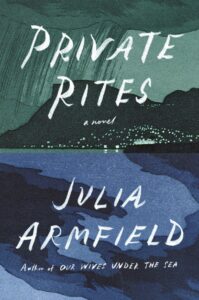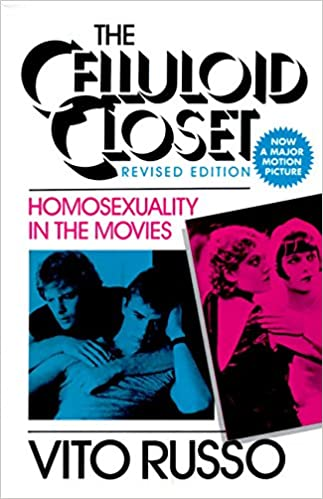As an avid reader of all of Julia Armfield’s fiction, I was eager to pick up her newest novel. From the author of Our Wives Under the Sea (2022), Private Rites (Fourth Estate, 2024) promised to be poignant, haunting, and literary.
Set in a future world where environmental disaster has flooded much of the world with ceaseless rains, three sisters attempt to navigate their tenuous relationship to one another in adulthood. Isla, Irene, and Agnes live in a drowning world where people seek comfort in ritual, religion, and sects of faith designed to—literally—hold back the tide or save them from floodwaters. Bound together by a mysterious and traumatic childhood where they were controlled by their tyrannical father—an architect famous for his building designs that defied the flooding cityscape—the three women are brought together after his death in a turbulent clash of grief, resentment, and longing.
While the sisters attempt to cope with their estranged father’s sudden death, reuniting in the monstrous glass house they grew up in, they also sense something else—something other—unfolding around them. Each sister is dogged by the sinister implication that there is more to their father’s death—and to their childhoods—than meets the eye. And yet, as the three are tempted more and more into their memories of the past, their sense of themselves and their places in the world become more and more fragmented. By the time it becomes clear to them that they have been selected for a particular purpose—one that might have a cosmic impact on the world—it could be too late to make a different choice.
Having read and loved Our Wives Under the Sea more than once, I was prepared to devour and adore this novel. Sure enough, the dark implications of the first chapters had me hooked. Agnes, Irene, and Isla and their shifting, refracting perspectives were compelling and gave the novel a kaleidoscopic quality that offered fractured visions of the sisters and their submerged world. Seemingly intentionally, it is challenging to get a handle on which sister is which until much later in the novel, given the way their perspectives flow into one another. Nevertheless, each sister’s voice becomes clear and unique, especially as the three clash more and more. Armfield strikes a careful balance between repulsion and yearning, hatred and love, that rings through the dynamics between the three women. Extreme resentment is run through with profound longing that burns at the edges of the novel. The emotions here were propulsive enough on their own and kept me reading.
Unlike Our Wives, the Gothic implications of Private Rites are far more subtle. The horror of the world is found in sentences—in the dark corners of the text—rather than more immediately on the page. Armfield reveals the danger lurking in this novel through fits and starts, through fragments of memory that intrigue and frighten. There is blood on every page of this novel, but the trick is to find it. That said, Private Rites is the definition of a slow burn, carefully unfolding the plot in small ways and leading to an intense ending. While it is worth the wait, the text holds back a great deal of information until the very end, leaving the reader with a sense of foreboding with nowhere to direct it.
I think I expected this novel to be more grounded in sinister ‘private rites’ and the Gothic, given the title and the UK cover. Instead, the relationships between the three sisters and the climate crisis take center stage a great deal of time. Each obviously feeds into the Gothic elements of the novel, but this really is a novel about family and terror in a dystopian world as Agnes, Irene, and Isla try to maintain their lives with their partners and with each other in the face of trauma and a collapsing environment. I still adored this book, but my expectations changed how I approached it in the end.
I highly recommend Private Rites as the perfect haunting December read over long, dark evenings!
Please add Private Rites to your TBR on Goodreads and follow Julia Armfield on Instagram.
Content Warnings: violence, abuse, death.
Rachel Friars received her doctorate in English Literature Queen’s University in Ontario, Canada in 2024. Her current research centers on neo-Victorianism and lesbian literature and history. Her work has been published with journals such as Studies in the Novel, The Journal of Neo-Victorian Studies, Queer Studies in Media and Popular Culture, and The Palgrave Handbook of neo-Victorianism.
You can find Rachel on X @RachelMFriars or on Goodreads @Rachel Friars.


